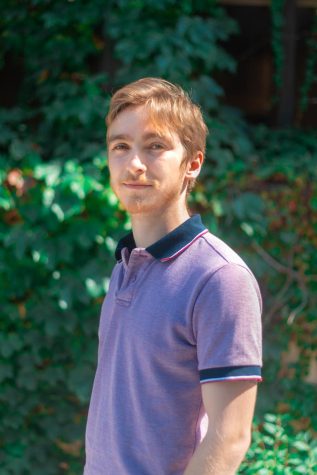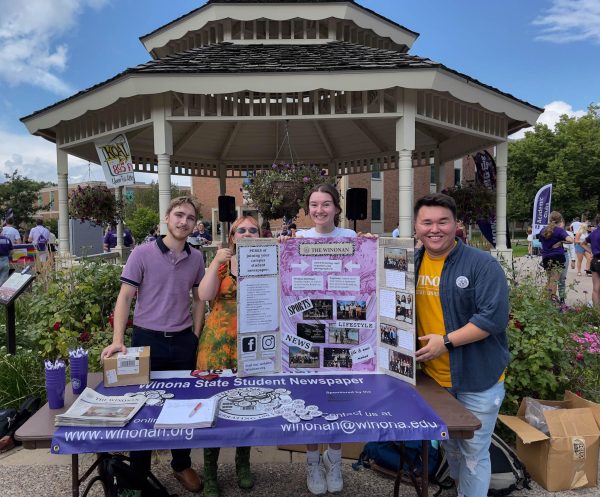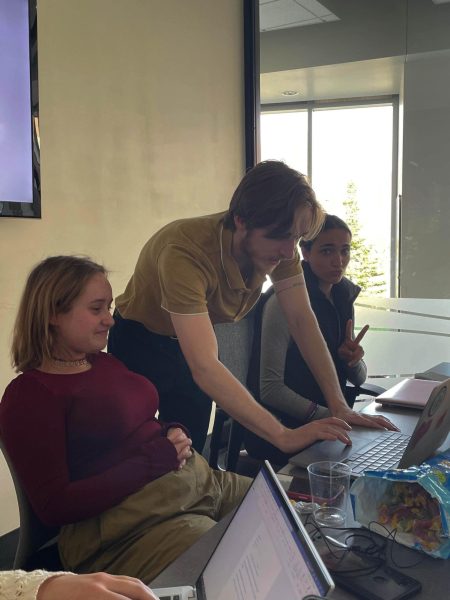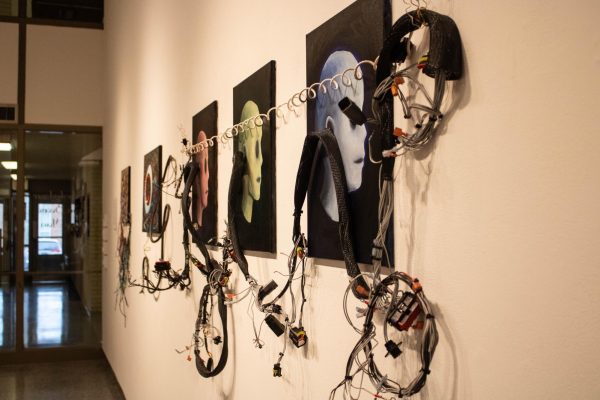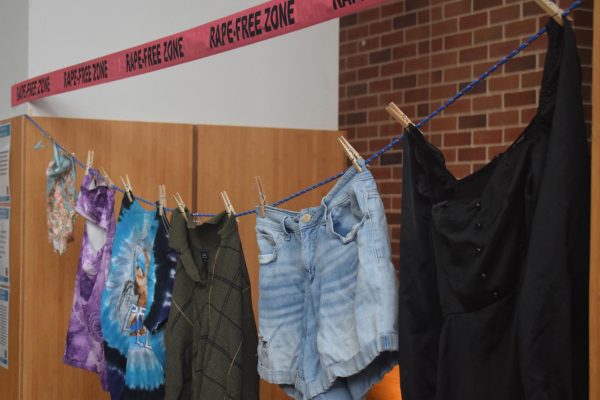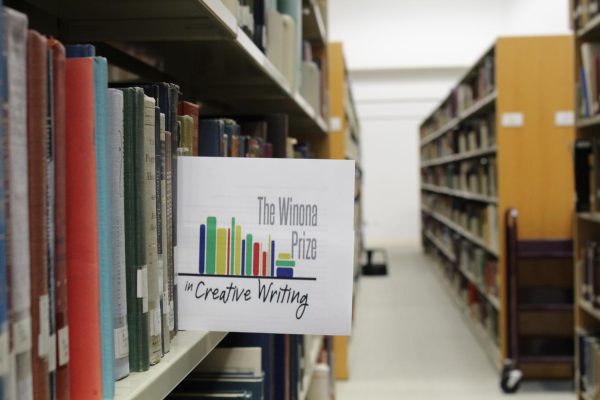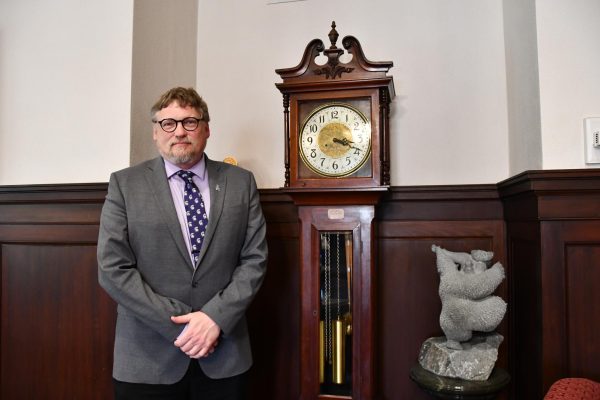Committee searches for common book

October 21, 2020
The Common Book Project is a recurring annual campus project that is now on its 15-year anniversary. This project facilitates colleges and universities choosing a new book each year that will be incorporated into the curriculum of several classes. This mainly includes, but is not limited to, English 111: College Reading and Writing.
This year is Dr. April Herndon’s second year of her three-year elected position as the Common Book Project director. Herndon is a professor in the English Department and as the director of The Common Book Project, her job is to solicit book nominations around campus coming to a total of about 30 nominations to start.
Next, the Common Book Committee, comprised of English Department members, narrow down the proposed list to just a few that the community then picks from. This whole process is a continual year-long project.
“[This project is] an interdisciplinary effort on campus to choose a book that faculty, staff, students and even our community members can come together and discuss,” Herndon said.
According to Herndon, many local community book clubs will often choose the Common Book to read due to being able to later hear from the author for free when they come to talk to students and staff in Somsen Hall.
This year’s Common Book is, “Undocumented: A Dominican Boy’s Odyssey from a Homeless Shelter to the Ivy League,” by Dan-El Padilla Peralta. This book was released in 2015, and is a memoir about Peralta’s life. It features issues such as housing insecurity along with its effect on educational outcomes and includes the overarching theme of immigration.
Herndon discussed how she thought this book felt especially fitting as this year’s Common Book because the university theme this year is global identity. Herndon noted that having a book that fits well with the university’s theme allows for wider variety of programming.
Common Book nominations often have a few major things that are taken into consideration when being judged. These factors include teachability, engagement and whether the author would be available and willing to work with the Winona State University community. These ideas can be seen with “What the Eyes Don’t See,” by Mona Hanna-Attisha, which was last year’s Common Book. Lessons were created around themes in the book, Attisha came to campus to do a talk in Somsen, and the book’s themes fit well with last year’s university theme which was resilience.
Herndon said there is still a great variety in the types of books that become Common Books.
“We’ve had everything from memoirs, to novels, to research projects,” Herndon said. “We had a book one year on the tomato industry, another book focused on trying to get clean water to specific places and then last year was Mona Hanna-Attisha’s book on the Flint water crisis.”
Sophomore Dakota Maertz said that even though he did not take English 111 last year, he remembers people talking about “What the Eyes Don’t See.”
“I think [The Common Book Project] is a great idea,” Maertz said. “Having a shared book with hundreds of others on campus is great! Plus, it’s a great way to inform students of serious or overlooked issues in our world.”The Common Book Project is a recurring annual campus project that is now on its 15-year anniversary. This project facilitates colleges and universities choosing a new book each year that will be incorporated into the curriculum of several classes. This mainly includes, but is not limited to, English 111: College Reading and Writing.
This year is Dr. April Herndon’s second year of her three-year elected position as the Common Book Project director. Herndon is a professor in the English Department and as the director of The Common Book Project, her job is to solicit book nominations around campus coming to a total of about 30 nominations to start.
Next, the Common Book Committee, comprised of English Department members, narrow down the proposed list to just a few that the community then picks from. This whole process is a continual year-long project.
“[This project is] an interdisciplinary effort on campus to choose a book that faculty, staff, students and even our community members can come together and discuss,” Herndon said.
According to Herndon, many local community book clubs will often choose the Common Book to read due to being able to later hear from the author for free when they come to talk to students and staff in Somsen Hall.
This year’s Common Book is, “Undocumented: A Dominican Boy’s Odyssey from a Homeless Shelter to the Ivy League,” by Dan-El Padilla Peralta. This book was released in 2015, and is a memoir about Peralta’s life. It features issues such as housing insecurity along with its effect on educational outcomes and includes the overarching theme of immigration.
Herndon discussed how she thought this book felt especially fitting as this year’s Common Book because the university theme this year is global identity. Herndon noted that having a book that fits well with the university’s theme allows for wider variety of programming.
Common Book nominations often have a few major things that are taken into consideration when being judged. These factors include teachability, engagement and whether the author would be available and willing to work with the Winona State University community. These ideas can be seen with “What the Eyes Don’t See,” by Mona Hanna-Attisha, which was last year’s Common Book. Lessons were created around themes in the book, Attisha came to campus to do a talk in Somsen, and the book’s themes fit well with last year’s university theme which was resilience.
Herndon said there is still a great variety in the types of books that become Common Books.
“We’ve had everything from memoirs, to novels, to research projects,” Herndon said. “We had a book one year on the tomato industry, another book focused on trying to get clean water to specific places and then last year was Mona Hanna-Attisha’s book on the Flint water crisis.”
Sophomore Dakota Maertz said that even though he did not take English 111 last year, he remembers people talking about “What the Eyes Don’t See.”
“I think [The Common Book Project] is a great idea,” Maertz said. “Having a shared book with hundreds of others on campus is great! Plus, it’s a great way to inform students of serious or overlooked issues in our world.”






















































